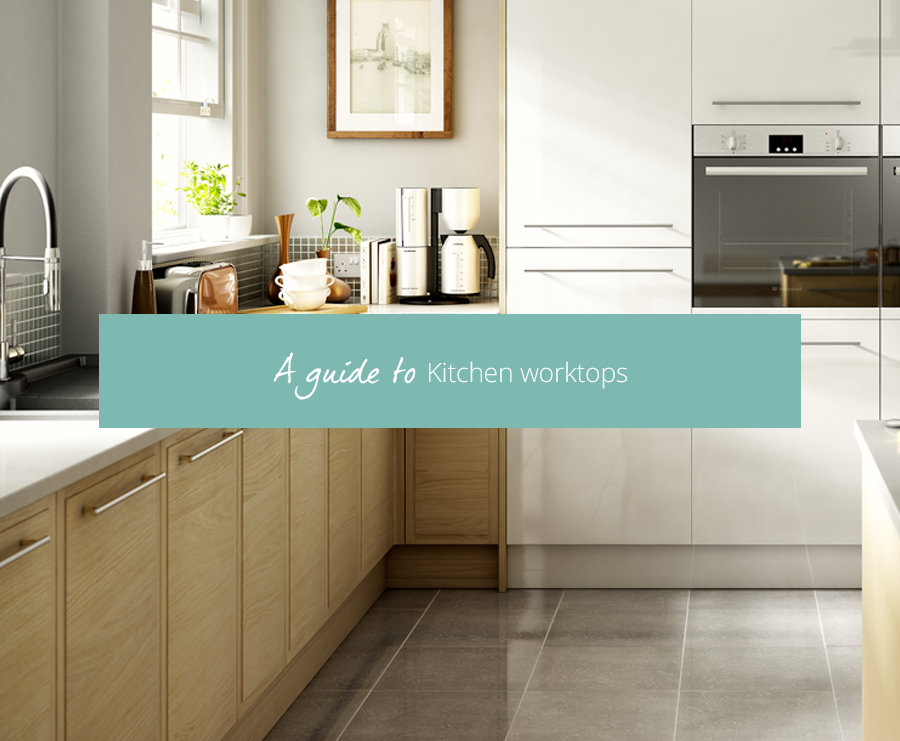A Guide to Kitchen Worktops
Confused about kitchen worktops? Here’s our concise guide to the pros and cons of granite and laminate to wood and stainless steel:

Granite
Granite is a luxury countertop material that is super durable, comes in a variety of finishes and is heat resistant. It needs very little maintenance and so, despite its higher cost, it’s great value for money in the long term, especially if you only need a small piece for a galley kitchen. Plus, because you can put hot pans straight onto a granite worktop you’ll never need to worry about unsightly heat marks, unlike marble worktops that can scratch and stain easily. However, because each slab of granite is unique you might not be able to achieve a uniform finish throughout your kitchen. It can also be tricky to remove heavy granite if you’d like to refresh your space later down the line.
Wood
Wooden worktops add warmth and natural beauty to a kitchen. They tend to work with any style (including gloss cabinets and painted shakers) and lots of colour varieties are available, such as maple, cherry, oak and teak. You can also apply a wood stain to create a colour that complements your design palette. Wooden countertops need to be regularly treated so that they remain sealed, safeguarding them from water damage and general wear and tear. They can also become scratched and dented, unlike hard granite tops, because they have a softer texture.
Laminate
Laminate worktops are popular because they are affordable, easy to fit and require little maintenance. Better yet, they come in a variety of designs and graphic patterns so you can achieve the look of granite or marble without spending a fortune. On the downside, laminate counters can often leave behind a tell-tale line across worktops where edges have been joined together and they don’t stand up to high heat. However, if they do become scratched or damaged they can be easily removed and cheaply replaced.
Stainless steel
For kitchens that get a lot of use, stainless steel counters are a useful option because they don’t stain, they’re heat resistant and affordable. The shiny surface reflects the light and makes smaller contemporary spaces look spacious but scratches, dents and smudge marks can appear on the surface. However, many would say that this adds to the charm of a heavily-used stainless steel worktop.
20th Jun 2017The Compare Network
Copyright – Insight Retail Group Ltd 2025 All rights reserved